- Home
- slideshows
- miscellaneous
- We got a look at the pitch deck that buzzy AI startup Cardinal Analytx used to raise a $22 million round led by famed investor John Doerr
We got a look at the pitch deck that buzzy AI startup Cardinal Analytx used to raise a $22 million round led by famed investor John Doerr
Cardinal Analytx's pitch deck opens with this slide. "Better care, sooner" is the company's slogan.

The start-up then goes into statistics about where it is today.
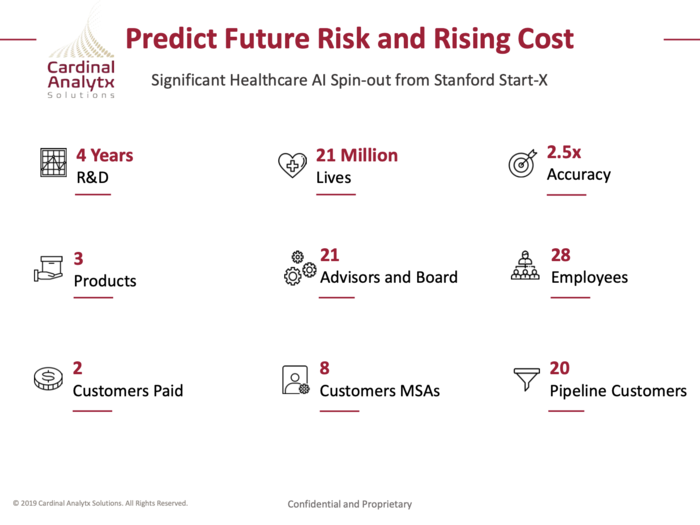
This slide was added as part of the overhaul done starting late last year.
The startup was founded by two Stanford researchers, Arnie Milstein and Nigam Shah, four years ago. Its machine learning algorithms were trained on data about claims, prescriptions, and patient engagement for 21 million people across seven years.
The start-up then partnered with Premera Blue Cross to see if the algorithms were accurate and applicable, and compared them to other solutions on the market.
When Hand joined in September, the now 28-person team honed all that work down to three distinct product lines.
The third slide cites the statistic that started it all and the very premise of Cardinal Analytx. That 6% of today's population is "not on anybody's radar, and often in a blind spot," Hand says, adding, "we want to get way ahead of the curve."
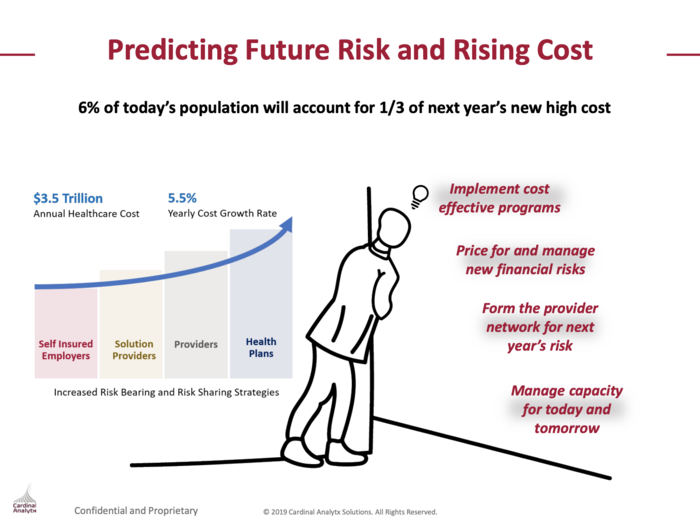
Cardinal Analytx has been focused on customers like health plans, which are big bearers of financial risk around rising healthcare costs.
But as the graph shows, the start-up also sees health systems and other healthcare providers as potential customers, because more players within the industry are taking on new types of financial risk.
The startup is in different stages of conversations with organizations in each group testing that out, according to Hand.
The next slide launches into Cardinal Analytx's approach to rising healthcare costs. It offers three solutions to customers, at varying price points.
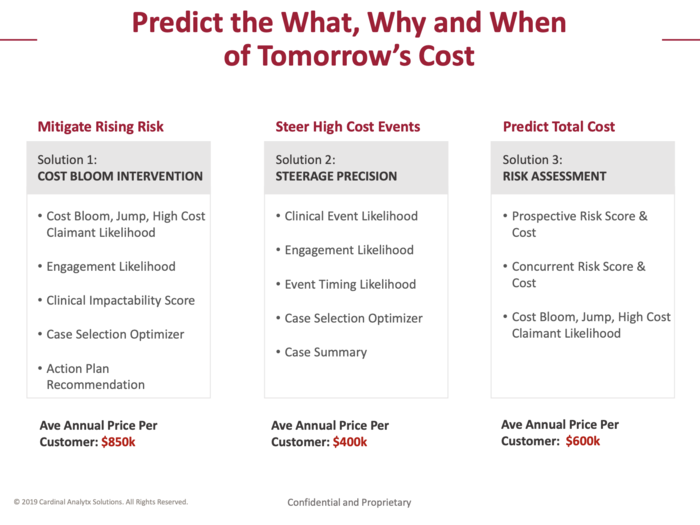
Each product is intended for different needs.
Resources used by health firms to reach out to patients and help manage their care are both scarce and expensive, so the first, "cost bloom," helps firms decide how to allocate and selectively apply those resources.
The second, "steering high cost events," looks at procedures like hip or knee replacements that could be coming up for patients. This offering predicts those up to a year out, to see if, for instance, physical therapy is an option, or the procedure can be done at a better, lower-cost surgery center.
"Predict total cost," the third option, is intended to better inform a provider's financial risk, by doing risk assessments that can shape negotiations and pricing.
The startup outlines the prices of these offerings on the slide. It removed certain other financial details from the pitch deck provided to Business Insider, including a slide of revenue projections and its customer pipeline.
The start-up then takes potential investors through how its "cost bloom" offering might work in practice, giving a patient outcome as an example.
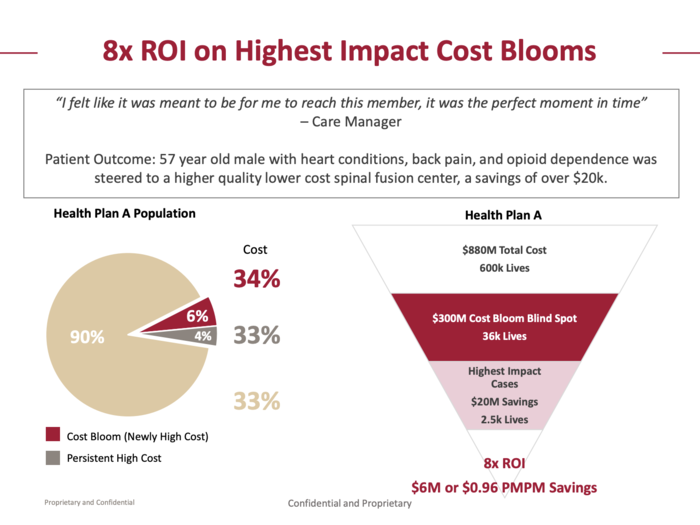
The data on the slide is based on a customer that Cardinal Analytx works with. The funnel represents a process of prioritization that happens once a customer uses the start-up's technology.
For instance, some companies' "care management" programs, which reach out to patients with the goal of getting them better, less expensive care, can't handle high-risk pregnancy, or cancer.
A customer "can't handle everything, and not everything is going to be impactable, and not everything you can get in front of," Hand explains.
This slide shows how one customer's engagement rate rose from about 12% to 40%, according to Hand. Of those who were engaged by the health plan, three-quarters took a call or calls and accepted a recommended health intervention.
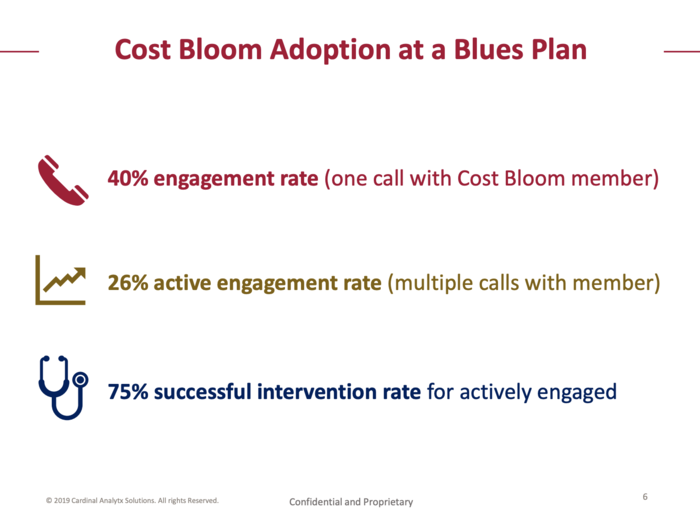
This slide refers to joint replacement surgeries, showing how they can lead to rising costs and getting ahead of them can bring in big savings for health plans.
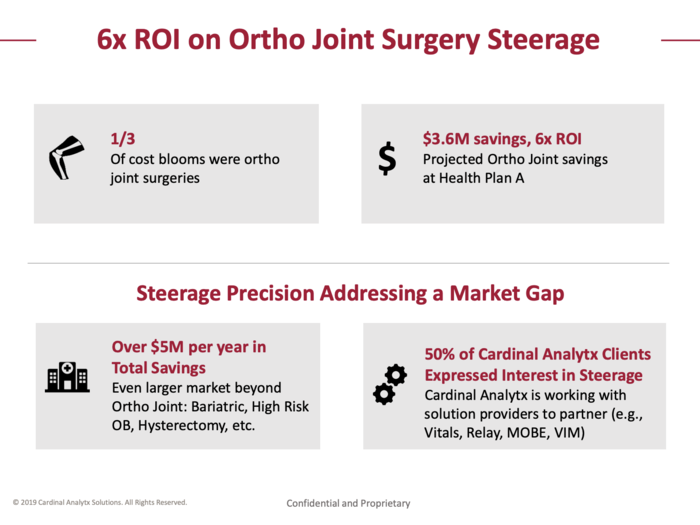
Here, Cardinal Analytx refers to its third product offering, showing data from a comparison made by a health plan to other programs that are also used by actuaries for functions liking pricing their commercial business. Rivals in this space include UnitedHealth Group's Optum and the firm Verscend, now called Cotiviti.
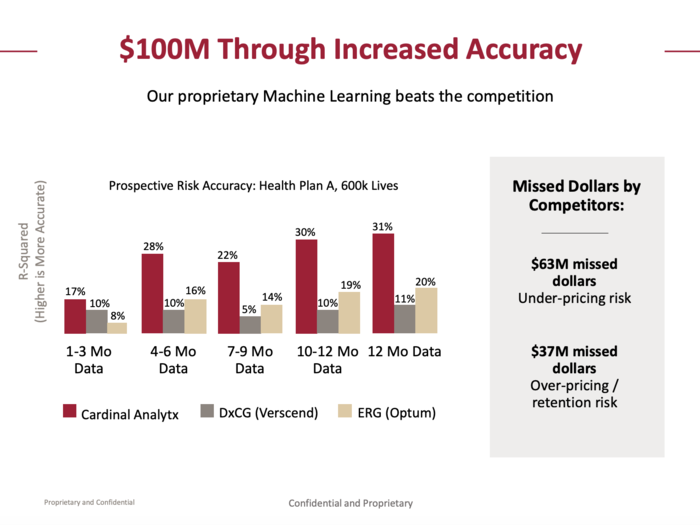
In this slide, the start-up describes its competitive landscape. Cardinal Analytx believes that no rivals are directly competing with all its offerings, but each of its offerings have competition, including from some big companies. "But also these players may be potential acquirers down the road," Hand noted.
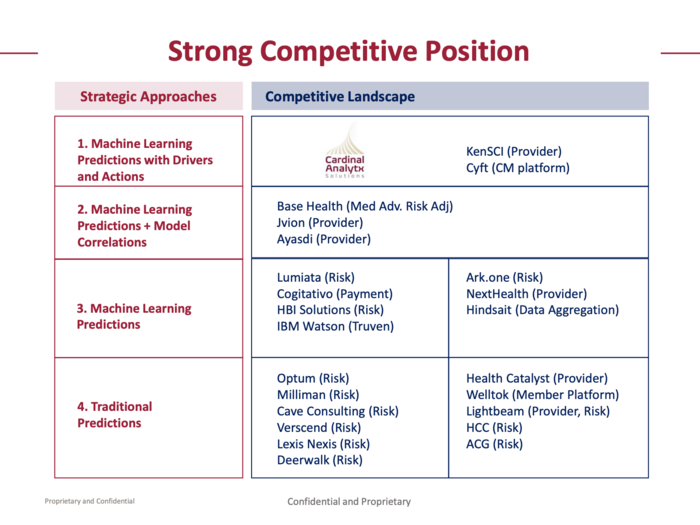
Towards the end of the deck, the start-up details its team and their experience.
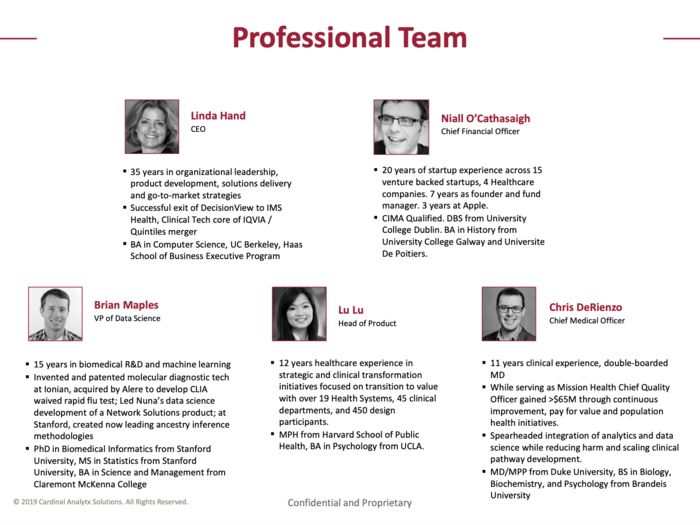
The company then points to its two Stanford founders and board members like John Doerr and Bain's Elizabeth Spaulding.
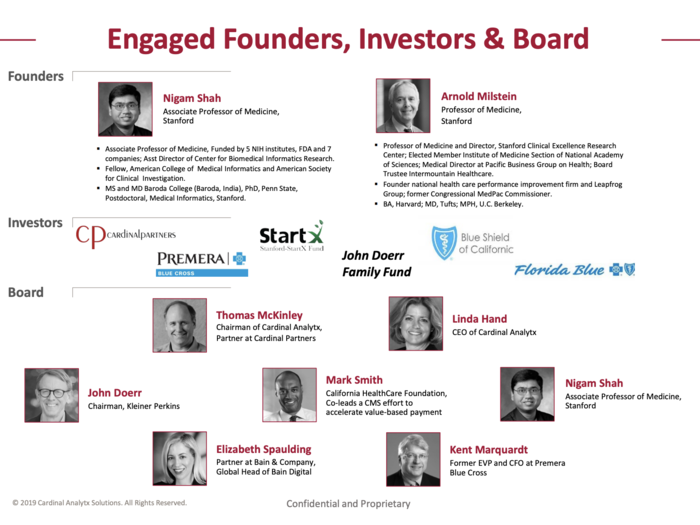
It touts advisors with expertise in science, industry, health plans and medicine.
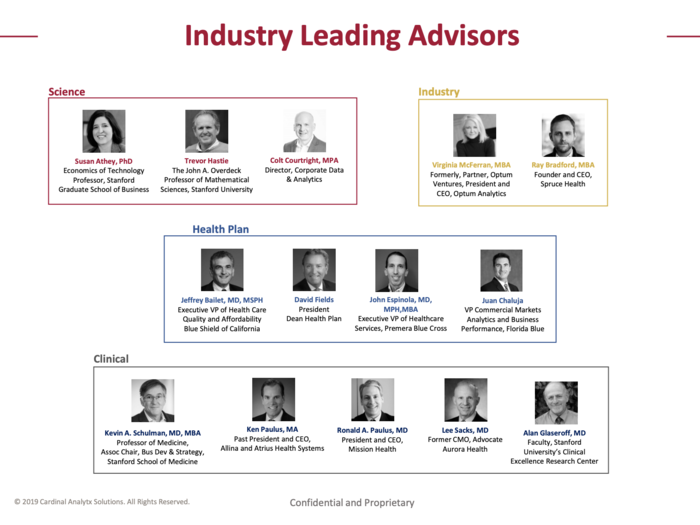
The deck ends by pointing to the investment opportunity on the table, and draws a timeline going to 2021 and beyond.
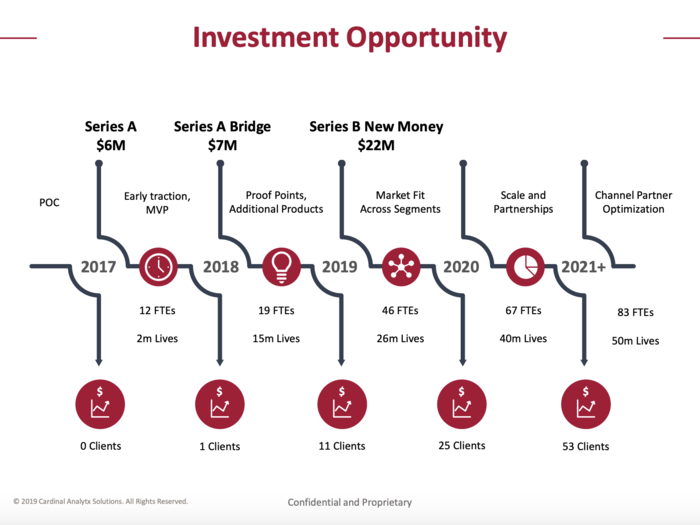
Popular Right Now
Popular Keywords
Advertisement